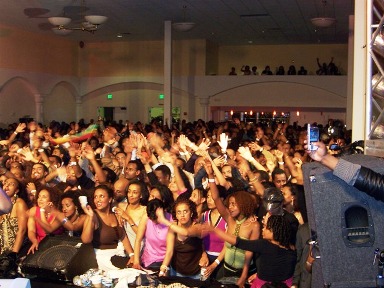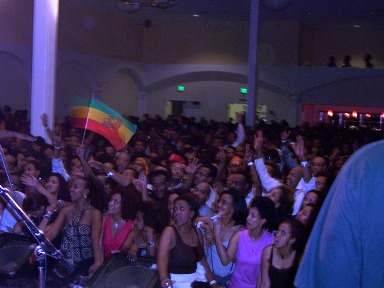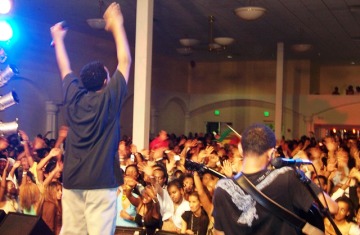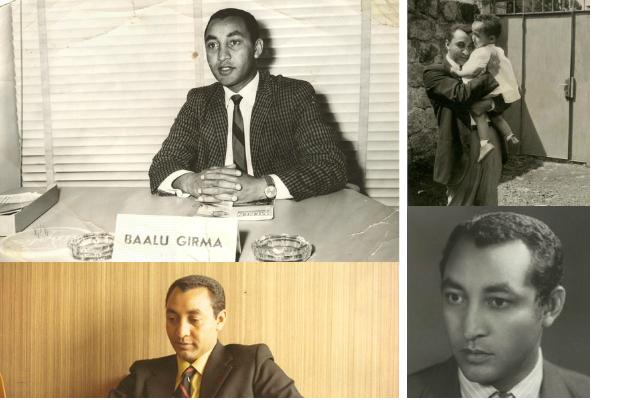 Photos Courtesy of baalugirmafoundation.org
Photos Courtesy of baalugirmafoundation.org
AllAfrica.com
Addis Abeba — Baalu Girma Foundation has been founded by the daughter of the prominent author and journalist Baalu Girma twenty five years after he went missing during the Dergue Marxist regime.
According to Meskerem Bealu Girma, the Foundation will be based in Michigan in the US and would strive to empower creative writers and journalists underrepresented in East Africa.
She said the foundation-a non-profit organisation established to promote learning- intends to achieve its mission through long-term and short-term projects, workshops, and talent-based academic awards. Read More.
On Thursday, February 14, 1984, Ethiopia lost one of its most acclaimed journalists and influential novelists. Baalu Girma left his home around 5:30 p.m. that evening – not knowing that it was to be the last time he would ever see his family. A devoted father, loved for his kindness and gentle demeanor, and widely respected for his professional work, his vanishing from the scene has left a big void in the hearts of many.
Baalu’s disappearance came seven months after his last novel, Oromay (The End), was abruptly removed from bookstores and banned from the market. Shortly thereafter, Baalu was dismissed from his permanent secretary position at the Ministry of Information and was accused of jeopardizing the revolution.
Oromay is Baalu’s masterpiece in which he playfully disguises and portrays flawed fictional characters to present a controversial view of one of Africa’s protracted and harsh political realities: Mengistu H. Mariam’s all out campaign to attempt to resolve the long standing conflict between Ethiopia and Eretria. In the work, he exposes the cruelty and the recklessness of top government officials and generals. In this captivating plot, Baalu shows the shortcomings of the government’s large-scale operations and foresees its eventual downfall. Oromay naturally angered members of the ruling party, including the dictatorial chairman Mengistu H. Mariam. The outcome of the book, however, did not disappoint Baalu – he had decided to accept great personal risk at the outset to tell the truth as a journalist and writer. Despite the continued surveillance of his whereabouts by the security officers, Baalu refused to go into hiding; in fact he had started working on another fiction when he was abducted by the military junta and begun reported missing.
The Early Years
Baalu Girma was born on September 22, 1939, in the province of Illiubabor, Ethiopia. His father was an Indian businessman, and his mother a local woman born to a wealthy family. His parents’ marriage ended when his father decided to move his family to Addis Ababa, and his mother’s family refused to permit them to leave. After the separation, Baalu’s father continued to provide for his son; but Baalu never managed to develop a strong relationship with his father. In college, he changed his last name to Girma, after a family who took him in as their own and gave him love and care throughout his childhood in Addis.
Aside from being very close to his maternal grandfather and having some loving memories of one particular teacher, Baalu rarely talked about his childhood in Illiubabor. After he completed traditional Ethiopian schooling as a child, Baalu moved to Addis Ababa and became a boarding student at the Zeneb Worq Elementary School.
Although he was academically very bright, as a youngster, he was also known for being a bit of a troublemaker. In fact, he was known to organize a school-wide protest in order to get his wishes.
Baalu’s excellent grades earned him a scholarship at General Wingate Secondary School. In 1951, he entered General Wingate, and it was there that he found his calling in journalism and creative writing. He often thanked his English teacher, Miss Marshall, for inspiring him and teaching him the technique of writing short sentences.
College Life
In 1962, Baalu earned a bachelor’s degree in Political Science and Journalism from Addis Ababa University. As an undergraduate, Baalu mixed academic excellence with the practice of journalism. He served as a news correspondent for the Ethiopian Herald (a prominent English-language newspaper) and as Editor-in-Chief of News and Views, a well-known university newspaper. As a young editor, Baalu was often critical of the emperor’s administration and his government’s policies, which at times forced Baalu to interrupt his school and go into hiding.
Despite these challenges, Baalu earned a full scholarship and obtained a master’s degree in Political Science and Journalism from Michigan State University, East Lansing, Michigan.
Professional Life
Late in 1963, Baalu returned to Ethiopia and began his career in the Ministry of Information as Editor-in- Chief of Ye’Zareyitu Ethiopia, a weekly newspaper published in the Amharic language.
In 1965, he was appointed Editor-in-Chief of Addis Reporter, a weekly magazine published in the English language. After three years of outstanding service, Baalu left the Addis Reporter and became Editor-in-Chief of the Ethiopian Herald, a daily English-language newspaper.
The early stage of his professional life did not go without incidents. Once he was suspended from his editorship role over a controversial editorial he had written in Addis Reporter, a weekly magazine published in the English language. Later, when returned to work, he had to accept a salary cut.
From 1970 to 1974, Baalu served as Editor-in-Chief of Addis Zemen, a mainstream daily newspaper published in the Amharic language. During the country-wide violence and profound political change in 1974, Addis Zemen, under the editorship of Baalu, remained the only unbiased and trusted source of information.
While he was the Editor-in-Chief of Addis Zemen, Baalu also wrote two of his most popular novels, Kadmas Basahger (Beyond the Horizon) and Ye’hillina Dewel (The Bell of Conscience).
In 1974, Baalu left Addis Zemen and became Deputy General Manager of the Ethiopian News Agency. Within a year, he was promoted to the General Manager position and remained in that post until 1977. At the end of 1977, Baalu became the Permanent Secretary of the Ministry of Information.
In addition to being a journalist and writer, Baalu served as guest lecturer of creative writing at Addis Ababa University.
Throughout his career, Baalu was known for his passion for his work, integrity, and willingness to defy the powerful. He was never afraid to challenge himself and others around him. Baalu was very much liked and respected by his co-workers. Many who had the privilege to work with him considered his leadership exemplary.
Final Days
As Baalu’s responsibilities increased, so did his frustration with the absolute dictatorship and lack of freedom of expression. With his passionate and skillful writing, Baalu continued to criticize the government and expose the widespread human rights abuses in the country. The vigorous novelist presented six acclaimed novels, four of which – Ye’kei Kokeb Teri (Call of the Red Star), Haddis (titled after the main character of the book), Derasiw (The Writer), and Oromay (The End) – were written while the military junta was in power and human right abuses in the country were at their peak.
Oromay, like his previous novels, captured the social and political affairs of the time. Although no names were mentioned, Baalu depicted high-ranking government officials in the book and characterized them so as to make their similarities to the contemporary leaders apparent to his readers. Of course, the courage that he had shown in Oromay made him increasingly popular, but it also created quite a number of powerful adversaries. Baalu was abducted by the military junta security forces while trying to exercise his right to freedom of expression.
After his shocking disappearance, the military junta classified Baalu as a missing person and circulated a leaflet asking everyone to cooperate in the fake search. A week later, family members found Baalu’s car outside of Addis Ababa on the way to Debre-Zeit, but no one has heard from Baalu since. He vanished into thin air, with a big dream and an unfinished manuscript.
Baalu’s books are his legacy, and they remain relevant and powerful. Even long after his short life on this earth, his literary work continues to inspire many.
Along with his wife, Almaz Aberra, Baalu is survived by his daughter, Meskerem, his sons, Zelalem and Kibre, and his granddaughter, Naomi-Baalu Gizaw.
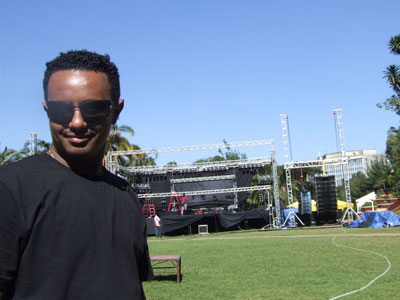 Ethiopian pop star Teddy Afro, who has been sentenced to six years in jail for a hit-and-run incident which led to the death of a homeless man, has had his sentence reduced on appeal. He was accused of running the man down in his car and driving away without reporting the incident in Addis Ababa in 2006. He was also convicted of driving without a licence. (Photo via Addis Zefen)
Ethiopian pop star Teddy Afro, who has been sentenced to six years in jail for a hit-and-run incident which led to the death of a homeless man, has had his sentence reduced on appeal. He was accused of running the man down in his car and driving away without reporting the incident in Addis Ababa in 2006. He was also convicted of driving without a licence. (Photo via Addis Zefen)
